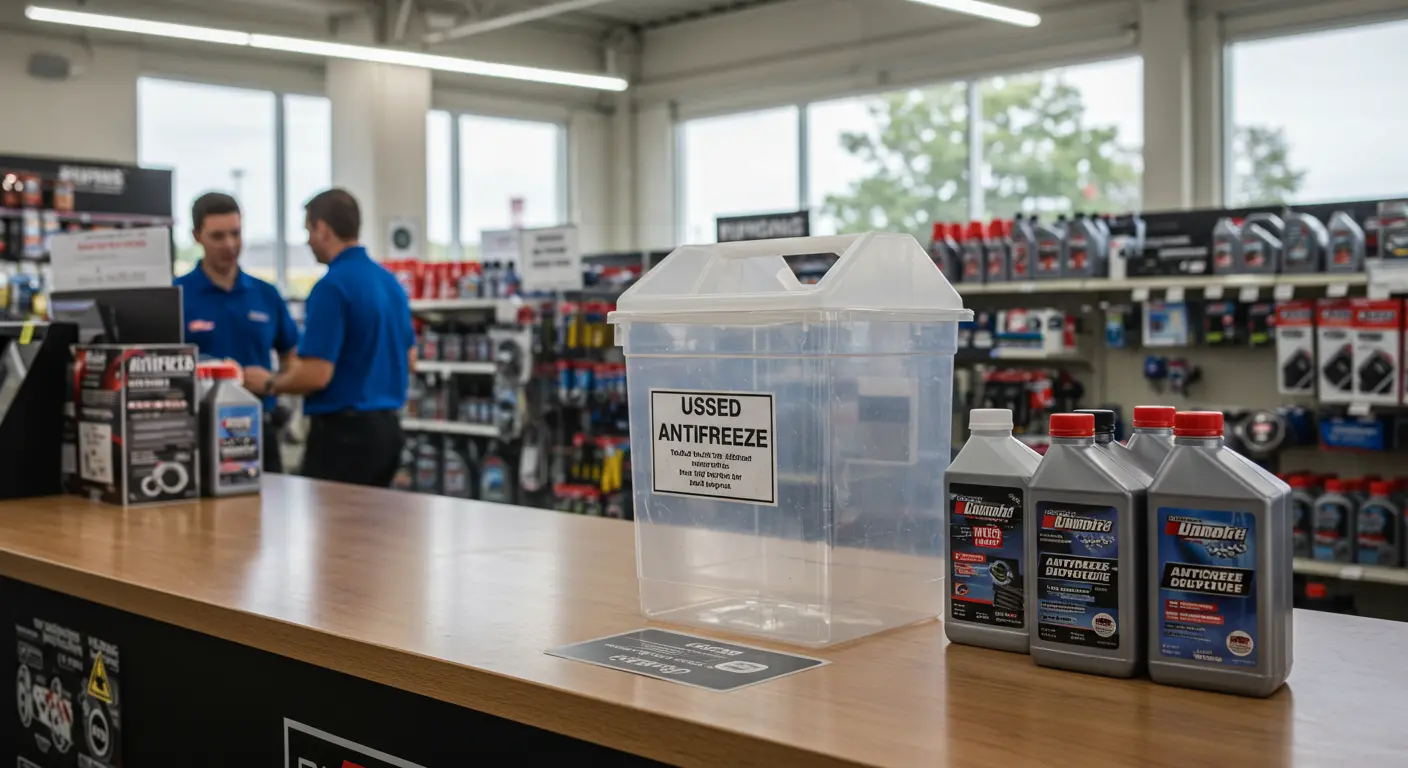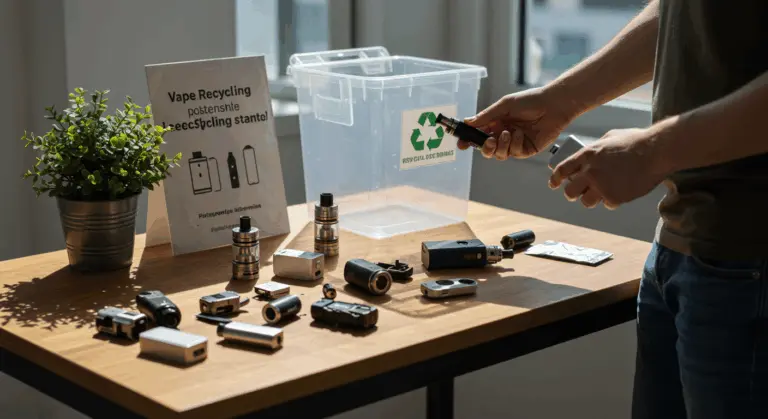Understanding Antifreeze and Its Hazards
Antifreeze is a crucial water-based additive in vehicle maintenance, with two essential functions for engine health. It prevents coolant from freezing solid during harsh winter conditions while simultaneously raising the boiling point to handle extreme summer heat—ensuring your engine operates optimally throughout the year.
The majority of antifreeze formulations rely on ethylene glycol, a compound that’s highly effective but extremely dangerous. Its naturally sweet flavor makes it appealing to curious children and thirsty pets, but this innocent taste masks a lethal reality. Even minimal ingestion can trigger catastrophic kidney failure or death. While propylene glycol alternatives offer reduced toxicity, they still demand vigilant handling and storage.
The dangers extend far beyond ethylene glycol itself. Antifreeze harbors a cocktail of additional chemicals—corrosion inhibitors, lubricants, and heavy metals like lead—that create widespread environmental hazards. When leaked or carelessly discarded, these contaminants don’t simply disappear. They infiltrate soil layers, migrate into groundwater systems, and damage delicate aquatic ecosystems.
Those distinctive bright colors—vibrant greens, bold oranges, striking pinks—signal different chemical formulations but offer no protection against environmental damage. This persistent liquid can linger in ecosystems for extended periods, creating contamination legacies that span years when mishandled. Therefore, antifreeze is classified as household hazardous waste in most jurisdictions and requires special disposal procedures.
Where to Recycle Antifreeze – Locations and Options
Responsible antifreeze recycling is both environmentally responsible and legally required. Unlike the widespread availability of motor oil recycling, antifreeze disposal options need more research. Fortunately, several pathways exist, ranging from municipal initiatives to specialized digital resources that can guide your search.
Earth911.com is an excellent resource for finding local antifreeze recycling options. Simply enter your zip code and specify your material type to find up-to-date information on permanent facilities and temporary collection events.
Marinas often welcome used antifreeze, particularly from boat owners managing their vessel’s cooling systems. Some progressive cities have pioneered curbside hazardous waste pickup—a rare but incredibly convenient service. Don’t hesitate to contact your local marina or waste management provider to explore these possibilities.
Auto Parts Stores – Your Go-To for Recycling
Surprisingly: major national chains like AutoZone and O’Reilly typically don’t accept used antifreeze, despite their generous policies for motor oil recycling. Policies can shift unexpectedly, so always verify with a quick phone call before loading up your car and making the trip.
While corporate giants may disappoint, independent and regional auto parts stores often prove more accommodating. Many have forged partnerships with specialized recycling companies to offer these services. When calling, be specific about your antifreeze type and quantity—they may have volume restrictions or specific requirements.
Even when stores can’t help directly, knowledgeable staff often become valuable resources, pointing you toward local facilities that can. Many retailers stock specialized recycling kits designed for safe transport, featuring:
-
Secure containers
-
Absorbent materials for spills
-
Proper handling instructions
Professional auto service centers provide a convenient alternative. When they perform coolant system flushes, they’ll handle your old antifreeze recycling as part of their comprehensive service. This becomes particularly convenient when your vehicle’s cooling system is already due for maintenance.
Municipal Programs for Hazardous Waste
Municipal hazardous waste programs are often your most reliable option for recycling. Nearly every city and county operates collection facilities or periodic events specifically for materials like antifreeze—substances banned from standard trash disposal. These taxpayer-funded programs typically serve residents at no additional cost.
Access these services by exploring your city’s website or contacting the local waste management department for comprehensive details about drop-off locations and scheduled events. You’ll need to transport your antifreeze in a properly sealed container, and some locations require proof of residency.
Collection events flourish in suburban and rural communities where permanent facilities aren’t feasible. These gatherings typically occur at central locations on predetermined dates. The major advantage? You can dispose of multiple hazardous materials simultaneously. The trade-off? You must safely store your antifreeze until the scheduled event arrives.
Metropolitan areas often have dedicated, year-round hazardous waste facilities strategically located at landfills or waste management centers. These sites employ trained professionals who provide expert disposal guidance alongside their services. The most progressive programs even deploy mobile collection units that bring recycling services directly to your neighborhood.
Proper Disposal Methods for Antifreeze
Antifreeze requires careful disposal due to its inherent toxicity. Never pour it down drains, onto soil, or into storm sewers—this causes serious environmental damage. The ethylene glycol and heavy metals within antifreeze harm ecosystems, while its deceptively sweet taste lures unsuspecting pets and wildlife to fatal poisoning.
Store your used antifreeze in its original container whenever possible, or transfer it to a clearly labeled, sealed plastic container until disposal becomes feasible. Always don protective gloves during handling. Should spills occur, act swiftly—contain the liquid with absorbent materials like cat litter, then dispose of all contaminated materials as hazardous waste.
DIY antifreeze changes require automotive drain pans to prevent messy spills. Follow up with careful funnel-assisted transfers into sealable containers. Critical rule: never mix antifreeze with other automotive fluids—contamination renders it completely recyclable.
Environmental Impact of Improper Disposal
Careless antifreeze disposal causes serious environmental damage. The toxic cocktail—primarily ethylene glycol combined with heavy metals like lead and arsenic—doesn’t simply vanish. Instead, these contaminants seep through soil layers and infiltrate groundwater systems, creating pollution that can persist for decades and threaten drinking water supplies for entire communities.
Aquatic environments face particularly severe threats from antifreeze contamination. Even trace amounts can trigger massive fish kills and completely disrupt ecological balance. The sweet taste that makes antifreeze so dangerous continues attracting wildlife, creating deadly traps. The statistics are sobering: just one tablespoon can kill a cat, while a few ounces prove fatal to dogs.
Soil contamination creates another serious long-term problem. Antifreeze makes soil toxic and unusable, preventing plant growth for extended periods. In landfills, it generates hazardous leachate requiring expensive specialized management. Meanwhile, the environmental cost compounds as manufacturers produce replacement antifreeze, generating additional carbon emissions and consuming precious natural resources.
Legal consequences add financial sting to environmental damage. Most jurisdictions enforce strict hazardous waste regulations backed by substantial fines for violations. Businesses face even steeper penalties, including potential criminal prosecution. When you combine environmental responsibility with legal necessity, proper disposal becomes the only sensible choice.
Recycling Process for Antifreeze
Used antifreeze can be completely recycled through a two-stage reprocessing system:
-
Purification: Advanced techniques—filtration, distillation, reverse osmosis, and ion exchange—strip away contaminants like metals, oil, and debris from the glycol foundation.
-
Re-additization: The purified glycol receives fresh chemical additives and corrosion inhibitors, restoring its protective properties to meet rigorous industry standards.
Most consumers unknowingly purchase recycled antifreeze regularly. The reprocessed product proves indistinguishable from virgin antifreeze while meeting identical performance standards. This creates a remarkable closed-loop system that dramatically reduces demand for new raw materials and minimizes the environmental footprint of routine vehicle maintenance.
Community recycling programs channel used antifreeze toward specialized re-refining facilities when available. This efficient process recovers up to 98% of the original fluid. Recycling conserves resources and reduces the demand for new petroleum-derived glycol.
On-site recycling has become increasingly popular at large auto service centers, where specialized equipment cleans and rejuvenates antifreeze directly on the premises. This approach reduces both transportation and processing costs. Recent technological advances have made smaller-scale operations increasingly viable, expanding antifreeze recycling accessibility across the nation.




